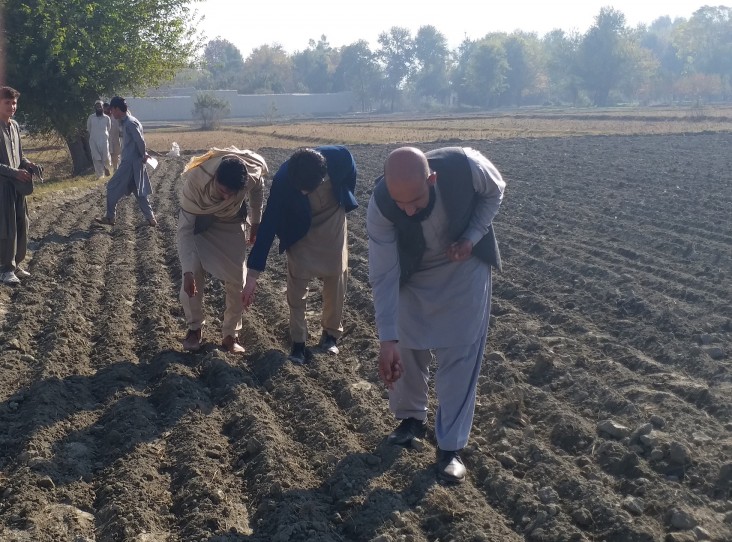Speeches Shim

Gul Ali, a 45-year old farmer and father of six children from Kama district in Nangarhar province in Afghanistan, used to struggle to meet his and his family’s daily needs. Using only traditional agricultural techniques, Gul Ali was barely able to generate enough income to take care of his family. This was true of many of the residents of the Kama district. About 80% of Kama district’s residents’ income is from agriculture and livestock activities, many of which are based on traditional, rather than modern approaches.
In order to help Kama residents, USAID introduced kitchen gardening and Farmer Field School approaches in November 2018 to improve agricultural practices and help farmers increase their income. The monthly trainings improved farmers knowledge of land preparation, wheat harvesting and line cultivation, irrigation, pests and disease identification and management, crop storage, market profitability and other topics. At a kitchen garden, a group of people come together with a common interest that they want to learn about. Topics of interest vary from pest management to organic agriculture.
Gul Ali was among 25 trained farmers of Kama district who utilized the knowledge and skills acquired through the Farmer Field School training to improve his earnings. Gul Ali believes that his training changed his life; his children can have good and nutritious foods and he no longer struggles to make ends meet.
“Using the new cultivation method, my products and income both have increased. I sell a large amount of wheat in the village market and therefore, I can meet the needs of my family,” said Gul Ali.
The livelihood trainings in Kama District benefitted 136 individuals. Using the new and easy methods of agriculture, people are changing their behaviors from traditional, time-consuming practices to more efficient and effective methods.

Comment
Make a general inquiry or suggest an improvement.